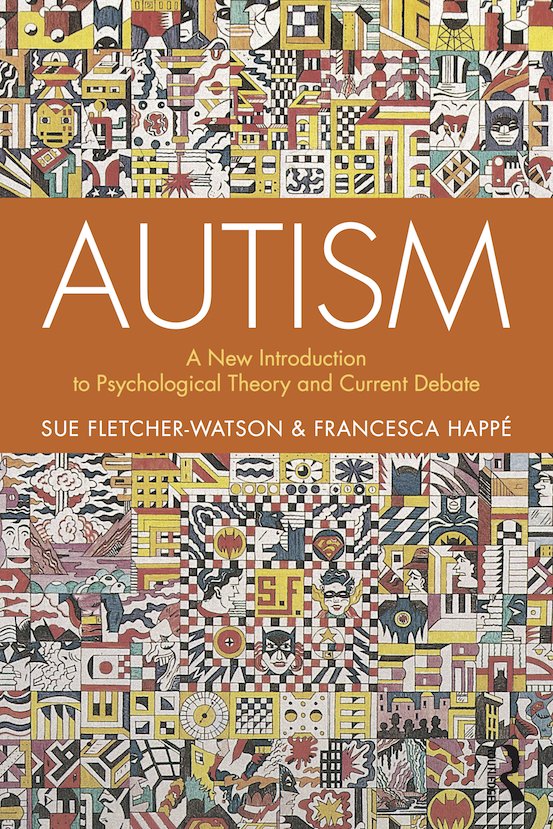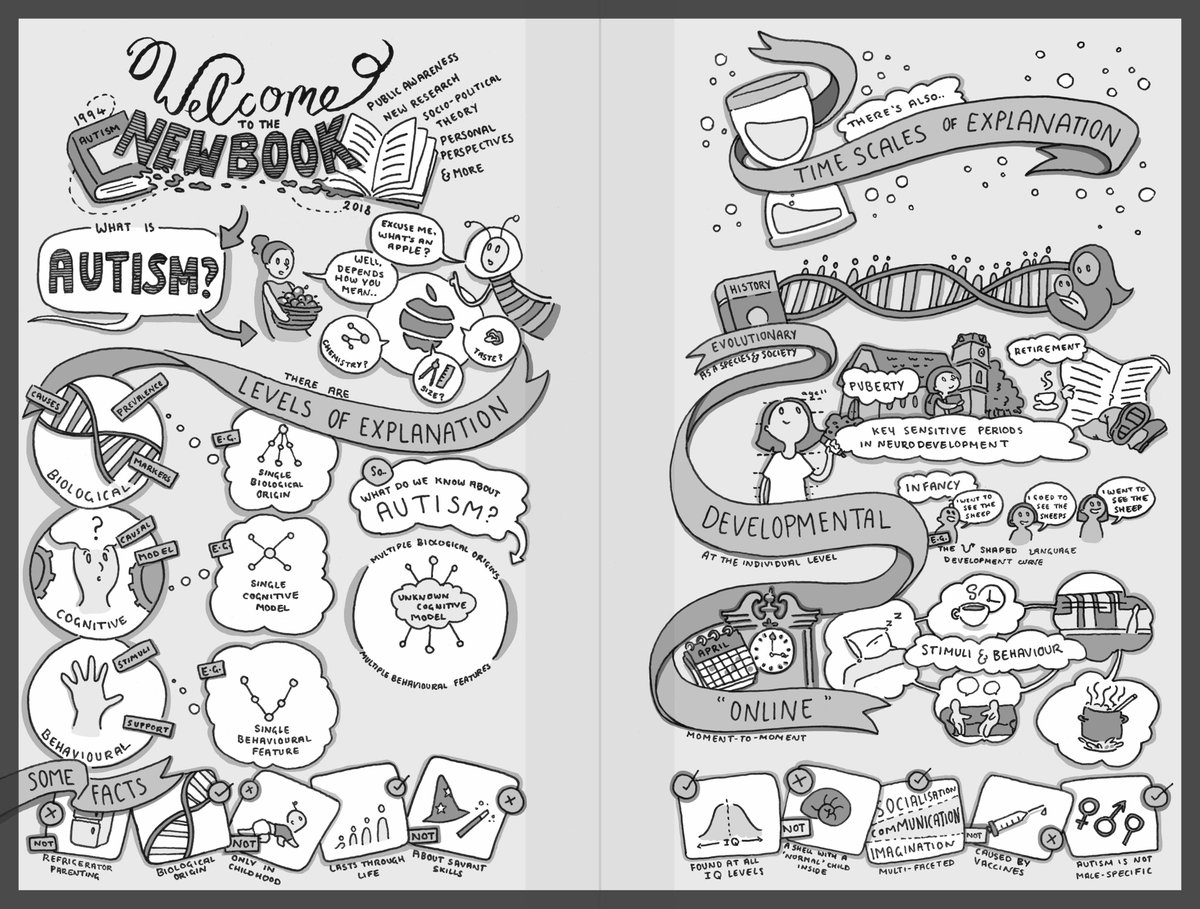
OK here we go with the Day 2 run-down for @ITAKOM_CONF
We kick off with Prof Pierre Magistretti giving us a tour of the ever-changing brain. The hardware we all share despite our many different experiences of the world.
Later that morning @heasutherland and @maxdavie will...
We kick off with Prof Pierre Magistretti giving us a tour of the ever-changing brain. The hardware we all share despite our many different experiences of the world.
Later that morning @heasutherland and @maxdavie will...
...be talking about applying the neurodiversity paradigm in both clinical & social care settings.
@HariSri108 will be presenting on using assistive & augmented communication devices #AAC and the stigma that entails, drawing on his experience + research.
In the Inclusive...
@HariSri108 will be presenting on using assistive & augmented communication devices #AAC and the stigma that entails, drawing on his experience + research.
In the Inclusive...
...Learning session we'll hear the latest on the #LEANSProject from @a_m_alcorn0131 + inspiring work in outdoor learning & wellbeing from @WaveProject
Students from @EdinUniNeuro will lead a workshop exploring how medications can be neurodiversity-affirmative
And finally...
Students from @EdinUniNeuro will lead a workshop exploring how medications can be neurodiversity-affirmative
And finally...
...in this section @BorgSkoglund will be talking about how and why we have failed women and girls when it comes to diagnosing #ADHD and #autism
A bit later on Tuesday morning we have an expert panel, No Mind Left Behind... In Education. This will be chaired by @rachaelvdavis...
A bit later on Tuesday morning we have an expert panel, No Mind Left Behind... In Education. This will be chaired by @rachaelvdavis...
...with panellists including the incredible @commaficionado @MxOolong & @LauraFMcConnell
At the same time we have a session on neurodivergent life journeys featuring @hollyw_1719 on #epilepsy & Kathleen Bechtold from @JohnsHopkins on transitions to adulthood
The stories...
At the same time we have a session on neurodivergent life journeys featuring @hollyw_1719 on #epilepsy & Kathleen Bechtold from @JohnsHopkins on transitions to adulthood
The stories...
...will be live again, and we have a fourth block of brand new research including @reeshazahir on mental health and sleep for autistic young people, @avkirbyPhD on suicide prevention, Susie Chandler from @KingsIoPPN on new methods for mental health research, + @neuronerd_rach...
...on autistic experiences of the menopause.
The workshop in this block is led by Agata Ostaszewska of @EmbraceComplex on how we embrace complexity in research and practice.
And to cap off the morning we have @LeadbitterKathy on neurodiversity-affirmative supports...
The workshop in this block is led by Agata Ostaszewska of @EmbraceComplex on how we embrace complexity in research and practice.
And to cap off the morning we have @LeadbitterKathy on neurodiversity-affirmative supports...
Right! we're on the home straight now.
Remember you don't need to see everything at the conference, during the conference! It'll all* be available online later to watch on catch up for in-person and online delegates.
Ok, so Tuesday afternoon starts...
*except the workshops
Remember you don't need to see everything at the conference, during the conference! It'll all* be available online later to watch on catch up for in-person and online delegates.
Ok, so Tuesday afternoon starts...
*except the workshops
...with a session on (Un)Supportive Systems featuring @Whitney_Iles from @project507 and @blkgirllostkeys talking respectively about the criminal justice system, and "The U in Community"
There's a big talk here from Australia-based inclusive education expert @doctorloretta1...
There's a big talk here from Australia-based inclusive education expert @doctorloretta1...
...and another on sexuality and people with an intellectual disability, from Lotta Mårtenson - looking at the right to a heathy happy sex life and the challenges to making that happen.
Moving to professional relationships, @scrappapertiger is talking about counselling for...
Moving to professional relationships, @scrappapertiger is talking about counselling for...
...different ways of being, while Dinah Aitken from @MindroomInform will talk about the crucial relationship between home and school
At the same time @freyaelise_ will deliver a workshop on participatory research methods, and I think this will be a rare example of such a...
At the same time @freyaelise_ will deliver a workshop on participatory research methods, and I think this will be a rare example of such a...
...session being led by someone with experience of being the non-academic partner in participatory work.
After afternoon tea, our final panel is No Mind Left Behind... In The Community and it will feature @BobbVenessa from @A2ndVoice and @ENABLEScotland among others...
After afternoon tea, our final panel is No Mind Left Behind... In The Community and it will feature @BobbVenessa from @A2ndVoice and @ENABLEScotland among others...
...Next door @KatieCebula and @SedgewickF and @Sarahhdbristol will be sharing their expertise on the topic of Happy (neurodiverse) Families with a look at all sorts of relationships across the lifespan.
New research on Inclusive Schools will be shared by @MsJoBillington on...
New research on Inclusive Schools will be shared by @MsJoBillington on...
...everyday experiences in mainstream schools, Charlotte Butter on supportive social groups for neurodivergent pupils, Alison Lane on designing sensory spaces to support inclusion and @HJayoosi from @MayflowerSch and @CRAE_IOE on flexible seating trials in primary school. Wow!...
Drawing to a close now there's one final workshop led by @MindroomInform exploring innovative ways to define and capture good outcomes for neurodivergent young people
The final keynote of the conference comes from the amazing Prof Sue Gathercole on transdiagnostic research...
The final keynote of the conference comes from the amazing Prof Sue Gathercole on transdiagnostic research...
and we end with two of your hosts, me and Alan Thornburrow with a call to action - what to take away, what to do differently in your daily life, your work, your relationships.
Ah, so that's the whole programme! Golly what a stonking line-up. I honestly could not be prouder...
Ah, so that's the whole programme! Golly what a stonking line-up. I honestly could not be prouder...
Final links for booking (including discounted and free bursary places) here:
itakom.org/register/atten…
full programme here:
itakom.org/wp-content/upl…
and I hope to see lots of you at #ITAKOM in March!
itakom.org/register/atten…
full programme here:
itakom.org/wp-content/upl…
and I hope to see lots of you at #ITAKOM in March!
@threadreaderapp please unroll
• • •
Missing some Tweet in this thread? You can try to
force a refresh








